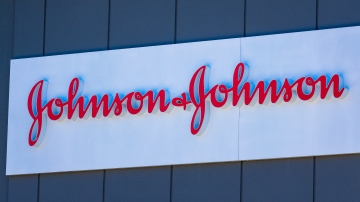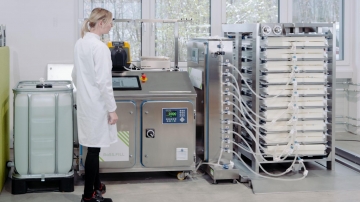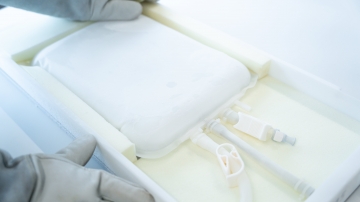Challenges in monoclonal antibody production
Table of contents
ShowThere are several challenges to overcome in order to make monoclonal antibody production a success. However, biopharma companies have to be prepared to face them all, as mAbs are an extremely requested product and heavily used in biotechnology: Several biopharmaceuticals involve mAbs, including innovative cancer treatments like ADCs (antibody drug conjugates).
So what are the different hurdles that need to be taken on the way to high-quality monoclonal antibodies? And what are the possibilities for biopharma to improve the monoclonal antibody production process?
Overview – monoclonal antibodies in life sciences
Monoclonal antibodies are enzymes that are produced in vitro and resemble naturally occurring immunoglobulins. They are known for their precision in targeting specific antigens, having paved the way for the development of diagnostic and therapeutic monoclonal antibodies.
Leveraging approaches like hybridoma technology, a process involving the fusion of B cells and myeloma cells, scientists can produce identical antibodies with desired properties. This breakthrough has significantly contributed to personalized medicine, allowing tailored interventions in conditions ranging from autoimmune disorders to cardiovascular and infectious diseases.
Regulatory bodies such as the U.S. Food and Drug Administration (FDA) and the World Health Organization (WHO) play crucial roles in ensuring the safety and efficacy of therapeutic monoclonal antibodies. In the context of a global pandemic, for instance, mAb products have been intensely studied in clinical trials, and although they are usually no longer seen as a viable treatment option, four of them did receive Emergency Use Authorization.1
However, mAbs play an essential role in immunotherapy: The ability to trigger immune responses is an essential facet in the design and efficacy of therapeutic monoclonal antibodies. Notable examples, such as trastuzumab in breast cancer treatment, showcase their potential in personalized medicine.2
In diagnostics, monoclonal antibodies are equally essential tools: They come into play in applications like ELISA (enzyme-linked immunosorbent assay) and can be used in the diagnosis of medical conditions like myeloid or lymphoid malignancies.1 2 3
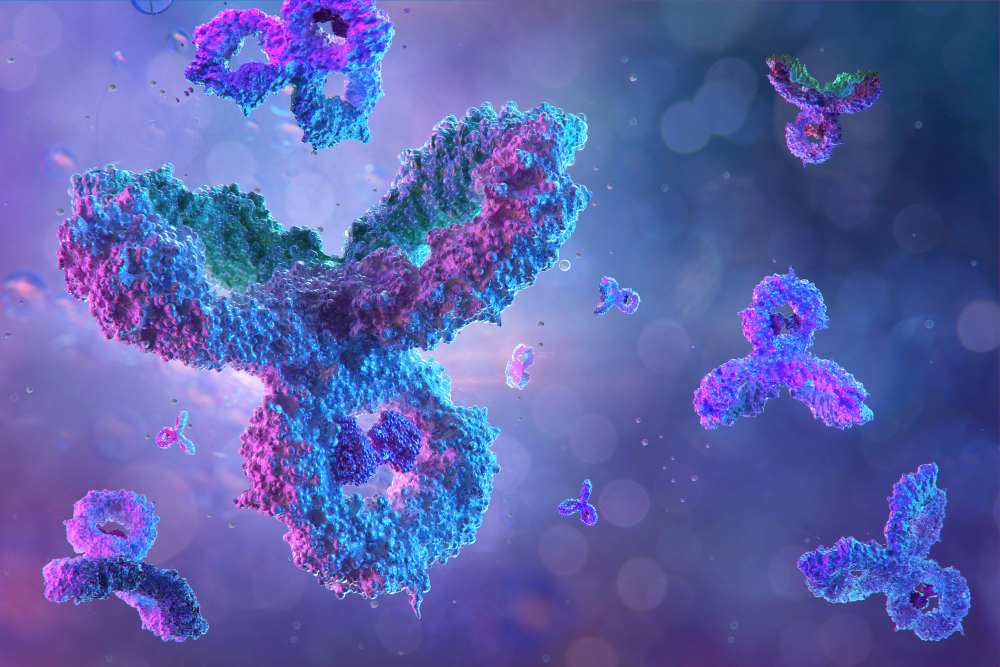
Designing optimized cell lines
Efficient monoclonal antibody production hinges on the strategic design of cell cultures, a task full of challenges. Mammalian cell lines, such as Chinese Hamster Ovary (CHO) cells, are frequently chosen expression systems; however, the challenge lies not only in choosing the cell line but in tailoring it for optimal productivity.4
Genetic engineering emerges as a key player in overcoming these challenges. Manipulating vectors allows for the customization of cell lines, enhancing productivity and fine-tuning specific characteristics. The introduction of recombinant antibody technology elevates this process, enabling the creation of chimeric and bispecific antibodies. This not only expands the scope of mAb functionalities but also introduces complexities in designing cell cultures that can reliably produce these innovative antibody formats.4
Fluid and cold chain management
Fluid and cold chain management pose significant challenges in monoclonal antibody production, influencing the overall efficiency and quality of the process.
Fluid management in mAb production involves the precise control of liquids throughout upstream and downstream processing. Maintaining consistent fluid flow rates, avoiding air entrapment and contamination, and ensuring the seamless and safe transfer of antibodies are critical aspects. The challenge lies in implementing sophisticated equipment and meticulous process control to master these hurdles in fluid management successfully.
Cold chain management, an equally crucial facet, involves maintaining optimal temperatures throughout the production process. Especially for long-term preservation, advanced freezing techniques are applied to prevent the biologics from deterioration. Accordingly, freezing methods need to be tailored to their freezing behavior in order to avoid aggregation and other freeze/thaw-related damages.
Read more: Freeze/thaw processes in mAb production | Automated aseptic filling of mAbs
Scaling up monoclonal antibody production
Scaling up monoclonal antibody production is a multilevel endeavor that involves overcoming challenges in technology, infrastructure, and process optimization. As production transitions from small to large-scale, the integration of advanced technology and infrastructure becomes crucial. The intricacies of high throughput must be addressed to efficiently handle increased volumes, ensuring that the manufacturing process is not only scaled up in size but also optimized for enhanced efficiency.
One of the primary challenges in scaling up mAb production lies in adapting technology and infrastructure to the demands of larger-scale manufacturing. Optimization becomes a focal point, requiring meticulous adjustments to ensure that the processes can effectively handle elevated concentrations and the production of diverse antibody variants. Implementing flexible technology and infrastructure – from bioreactors to fluid and cold chain management solutions – is therefore paramount to achieving scalability without compromising the integrity and quality of the final product.
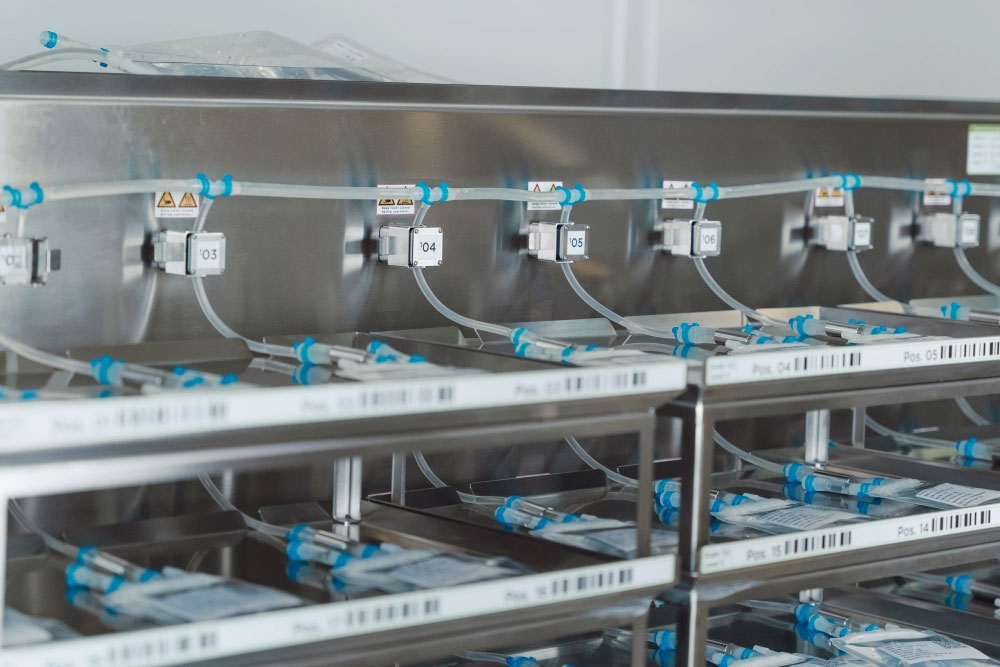
Safety in mAb manufacturing
Safe handling in monoclonal antibody manufacturing is a top priority and guided by strict regulatory standards. For maximized safety, several aspects need to be considered:
- Compliance with guidelines from authorities like the U.S. Food and Drug Administration (FDA) ensures that mAbs meet rigorous safety criteria.
- The manufacturing process includes the removal of impurities through stringent purification methods like chromatography and filtration. This focus on purity aims to eliminate any elements that could compromise the safety and immunogenicity of mAbs.
- Addressing cytotoxicity (the potential toxicity of mAbs on cells during in vivo applications) is another key safety consideration. The entire manufacturing chain, from cell line development to the final product, is designed with the goal of ensuring optimal safety profiles and characteristics of mAbs.
- Maintaining aseptic conditions during mAb manufacturing is as vital as challenging: All the components of the manufacturing process must be free from contaminants. On the other hand, staff and the environment need to be protected from exposure as well, considering the potentially hazardous effects of antibody compounds like ADCs.
Balancing efficiency, quality and costs
Balancing efficiency, quality and cost in monoclonal antibody manufacturing involves streamlining processes for efficiency. However, this must not compromise the stringent quality standards that are critical to the safety and efficacy of mAbs.
Implementing cost-effective approaches requires strategic alignment to maintain high-quality standards while optimizing production efficiency. Still, the widespread possibilities of antibody-based therapies and diagnostic tools justify these efforts. And as the industry keeps exploring human monoclonal antibodies, flexible solutions are being implemented in order to keep track with the newest trends in mAb production.
Process control in monoclonal and recombinant antibody production
Process control in monoclonal and recombinant antibody production is vital for ensuring reproducibility and therapeutic efficacy. Addressing pharmacokinetics is key, optimizing the various steps in antibody production for enhanced therapeutic impacts or diagnostic accuracy.
Robust process control, including real-time monitoring during production, enhances safety and transparency in mAb production process and is therefore of utmost importance for companies that manufacture monoclonal antibodies.
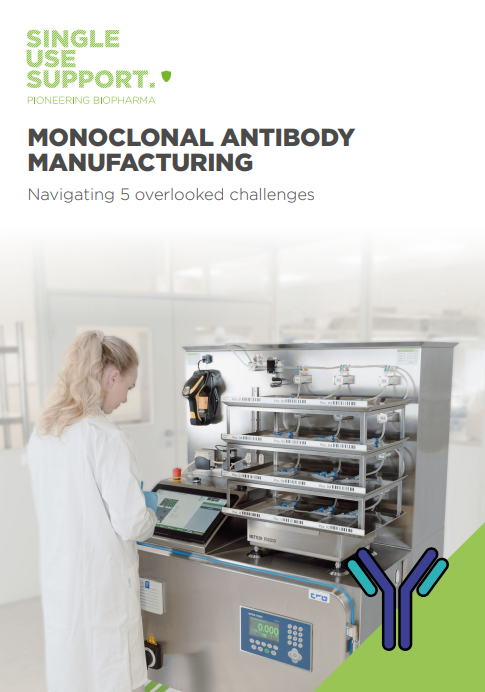
Download Guide
Navigating 5 Overlooked Challenges in Monoclonal Antibody Manufacturing
Overcoming challenges with Single Use Support
As leading expert in the fluid and cold chain management of biopharmaceuticals, Singe Use Support offers dedicated solutions for mAb production that support manufacturers in facing their most troublesome challenges.
mAb production using single-use technologies is based on single-use bioprocess containers, covered in secondary packaging solutions like RoSS® Shell. The additional layer around the single-use bag enhances protection for these valuable biologics, after they have been filled by means of the aseptic filling platform RoSS.FILL. These solutions can cater to different batch sizes while offering high levels of precision and consistency.
In the following, mAbs can be homogeneously frozen with RoSS.pFTU – a plate freezing platform that allows precise control over freezing rates down to ultra-low temperatures. These can then be kept stable in the RoSS.ULTF ultra-low-temperature freezer, which allows for high storage density and temperature consistency.
In combination, the scalable solutions provided by Single Use Support represent a customizable means to take the challenges in mAb production while pushing progress in this field even further.
Frequently asked questions
What are monoclonal antibodies?
Monoclonal antibodies are immunoglobulins that are produced in vitro with the purpose of binding to specific epitopes. They target specific molecules, such as receptors or antigens, on cells and trigger immune responses to eliminate disease-causing agents.
How do monoclonal antibodies work as therapeutics?
Monoclonal antibodies work by binding to specific epitopes (using their specific antigen-binding-sites) and triggering immune responses to eliminate pathogens or abnormal cells. They are promising tools in the fight of various diseases, including cancer, autoimmune disorders, and infectious diseases.
What are the challenges in mAb production?
Challenges in mAb production include aggregation, unwanted immune response, and side effects due to variations in formulation, characterization, and cloning processes. Efficient fluid management, scalability, and safety measures are essential to address these challenges and ensure the quality and efficacy of mAb therapies.
- Monoclonal antibodies as diagnostics; an appraisal, http://dx.doi.org/10.4103/0250-474X.62229, Published 2010-04-06
- Anti-SARS-CoV-2 Monoclonal Antibodies, https://www.covid19treatmentguidelines.nih.gov/therapies/antivirals-including-antibody-products/anti-sars-cov-2-monoclonal-antibodies/, Published 2023
- Trastuzumab, https://www.ncbi.nlm.nih.gov/books/NBK532246/, Published 2024
- Advances in recombinant antibody manufacturing, http://dx.doi.org/10.1007/s00253-016-7388-9, Published 2016-03-02






